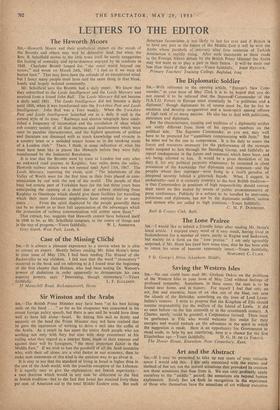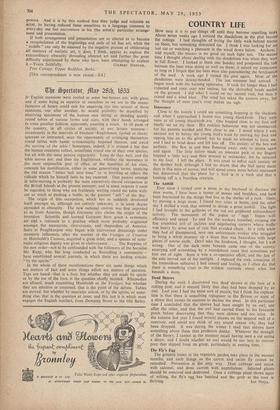Art and the Abstract
SIR,—If I may be permitted to take up any more of your valuable space I would add this. I am only concerned with the matter and method of fine art, not the inward sensations that provoked its creation nor those sensations that flow from it. We can only profitably apply ourselves to the " middle " period; the sensations are beyond human explanation. Surely fine art finds its recognition in the experience of those who themselves have the sensations of art without executive powers. And it is by this method that they judge and estimate an artist, he having reduced these sensations to a language common to every-day use but uncommon in his (the artist's) particular arrange- ment and presentation.
If both arrangement and presentation are so altered as to become a recapitulation of the beginnings and ends of all fine art, while the " middle " can only be assessed by the negative process of obliterating all memory of realistic art, it does, I think, appear to explain the extraordinary obscurity shrouding abstract art and further the great difficulty experienced by those who have been attempting to explain
It—Yours faithfully. GILBERT SPENCER._ Tree Cottage, Upper Basildon. Berks.
[This correspondence is now closed.—Ed.]



































 Previous page
Previous page